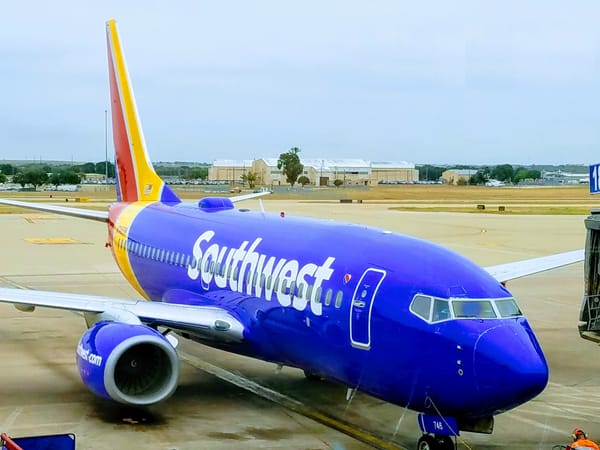The Freedom Trail - A Look at Boston History
Explore Boston's Freedom Trail, where history comes alive with costumed guides sharing captivating stories about America's revolutionary roots.
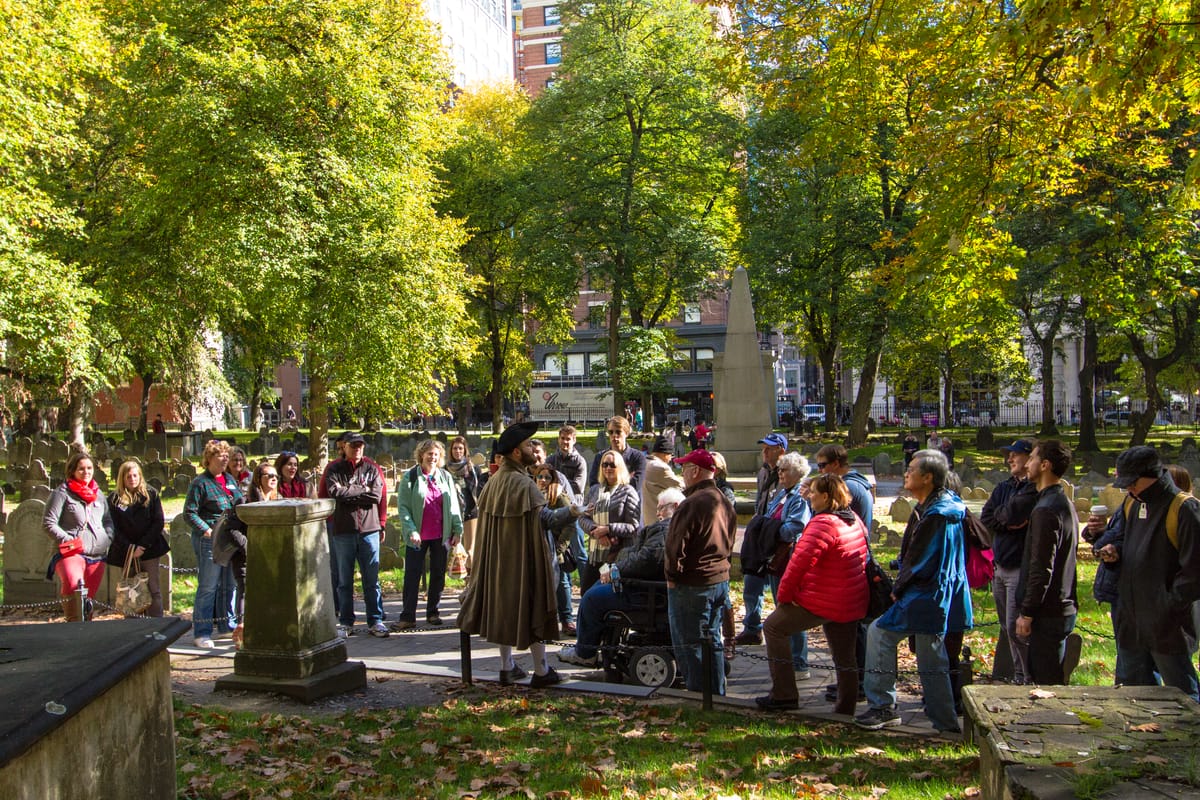
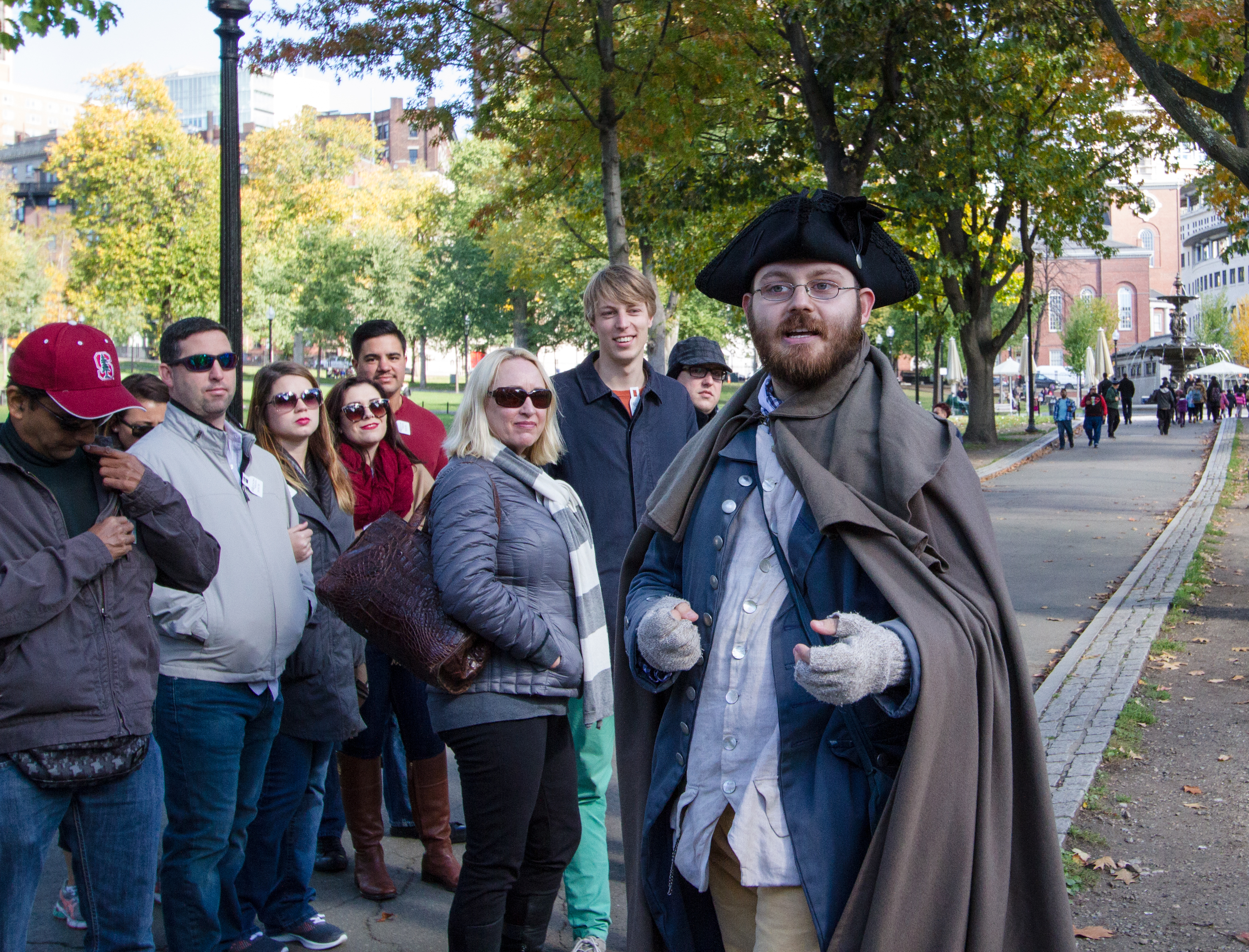
“TAXATION WITHOUT REPRESENTATION IS TYRANNY!” shouted our guide, as we gathered around him on the Boston Common. Quoting James Otis and donning a dark tricorn hat, earthen brown cloak, and blue waistcoat, “William Molineaux” passionately describes the origins and significance of the 44 acres that make up the Common from which The Freedom Trail begins.
Boston History
Since its conception in 1951 The Freedom Trail has promoted the sites and structures of Boston History. Boston played a significant role in the birthplace of America’s Revolution. The non-profit Freedom Trail Foundation is dedicated to the preservation and restoration of the 16 sites along the trail. Whether self-guided or on a tour, over 4 million people annually “Walk Into History” along Boston’s Freedom Trail.
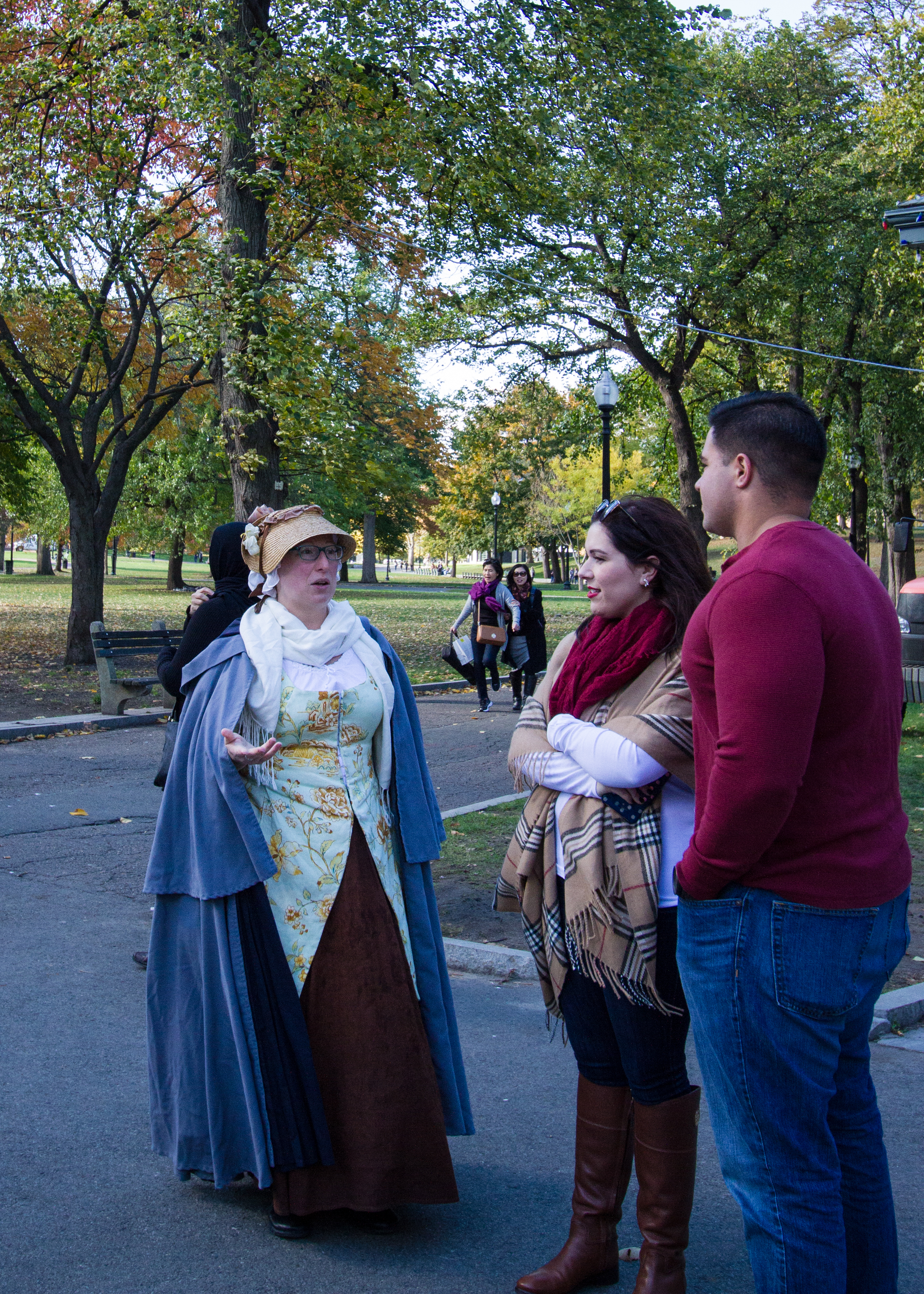
The costumed Freedom Trail Players portray historic Bostonians vital to The Revolution and America’s fight for independence. For 90 minutes they escort visitors along the roughly mile long trail divulging a world of knowledge and trivia along the way. “When people see the buildings, see the clothes, things become so much more real to them and mean so much more. They leave saying, ‘I had no idea that happened! I want to know more!’” says Emily Kovatch, an historian who portrays Mehitable Dawes.
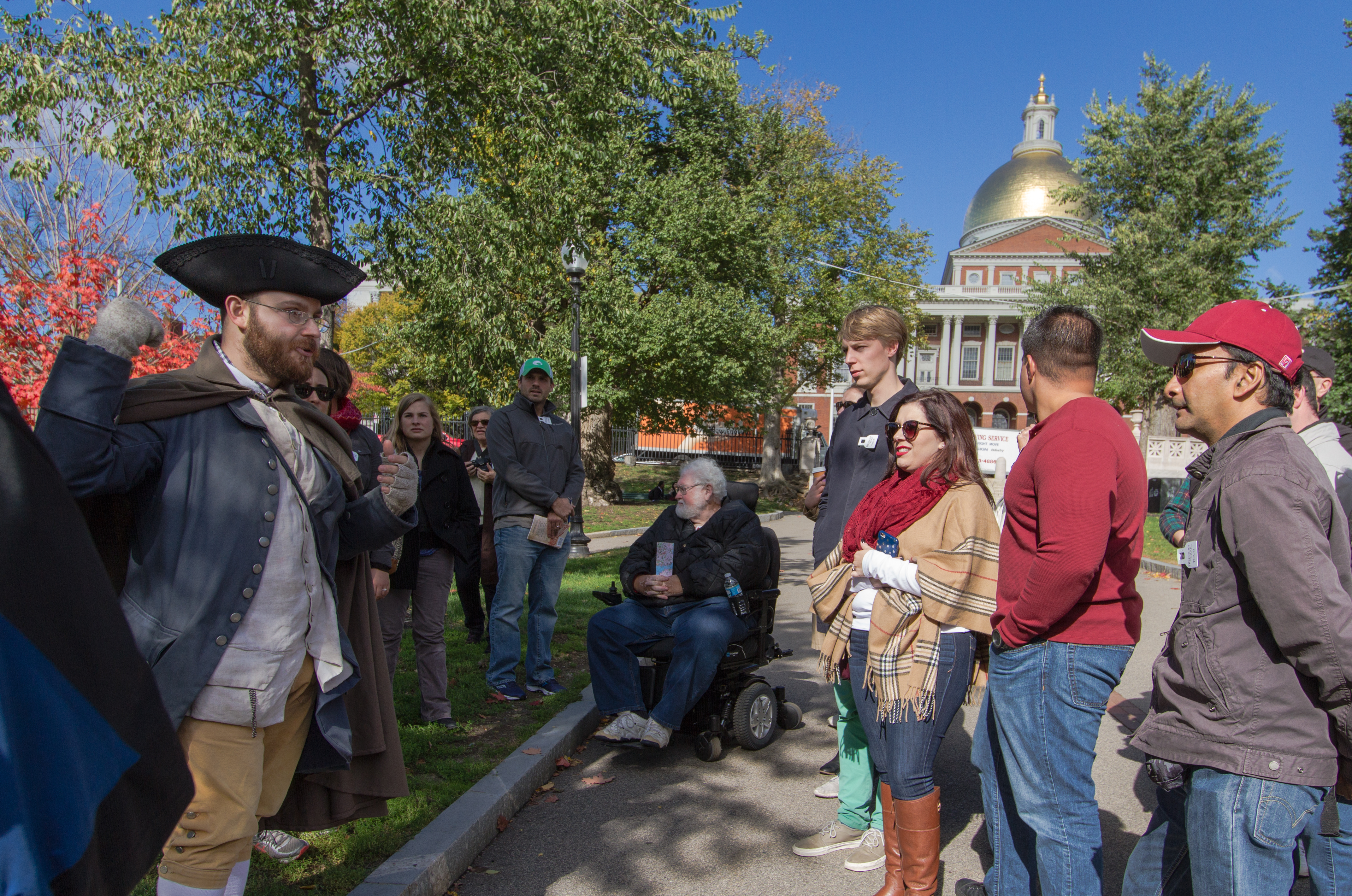
William Molineaux, portrayed by Gary Petersen, has been guiding Freedom Trail tours for 7 years. “It’s not a play, it’s a conversation, making history much more interactive.” says Petersen. After regaling us with facts about the Boston Common, such as the playground where children were currently playing was once the very spot were executions of heretics, witches, and common criminals took place, he led us away from the Visitors Center and off towards the golden-domed State House.
The construction of the “new” State House began in 1795. It was overseen by then governor Samuel Adams and fellow patriot Paul Revere. It was built on John Hancock’s grazing pasture right next to Hancock’s lavished mansion, which was demolished in 1863. Such losses remain the driving force behind the preservation efforts of The Freedom Trail Foundation.
Freedom Trail Tour
Park Street Church
Leaving the gleaming State House, we made our way towards the 217 foot tall steeple of Park Street Church and the Granary Burying Grounds by following the red line that marked The Freedom Trail. Here, Molineaux eloquently explained how Park Street Church was constructed where the town’s granary once stood following the completion of the State House. The church was claimed to be “the most interesting mass of bricks and mortar in America” by Author Henry James. Also at this site Abolitionist William Lloyd Garrison gave his first major speech against slavery on July 4th, 1829. Two years later to the day “My Country ’Tis of Thee” was debuted from the steps of Park Street Church.
The two photos below are of North Church which we also visited on our walk.
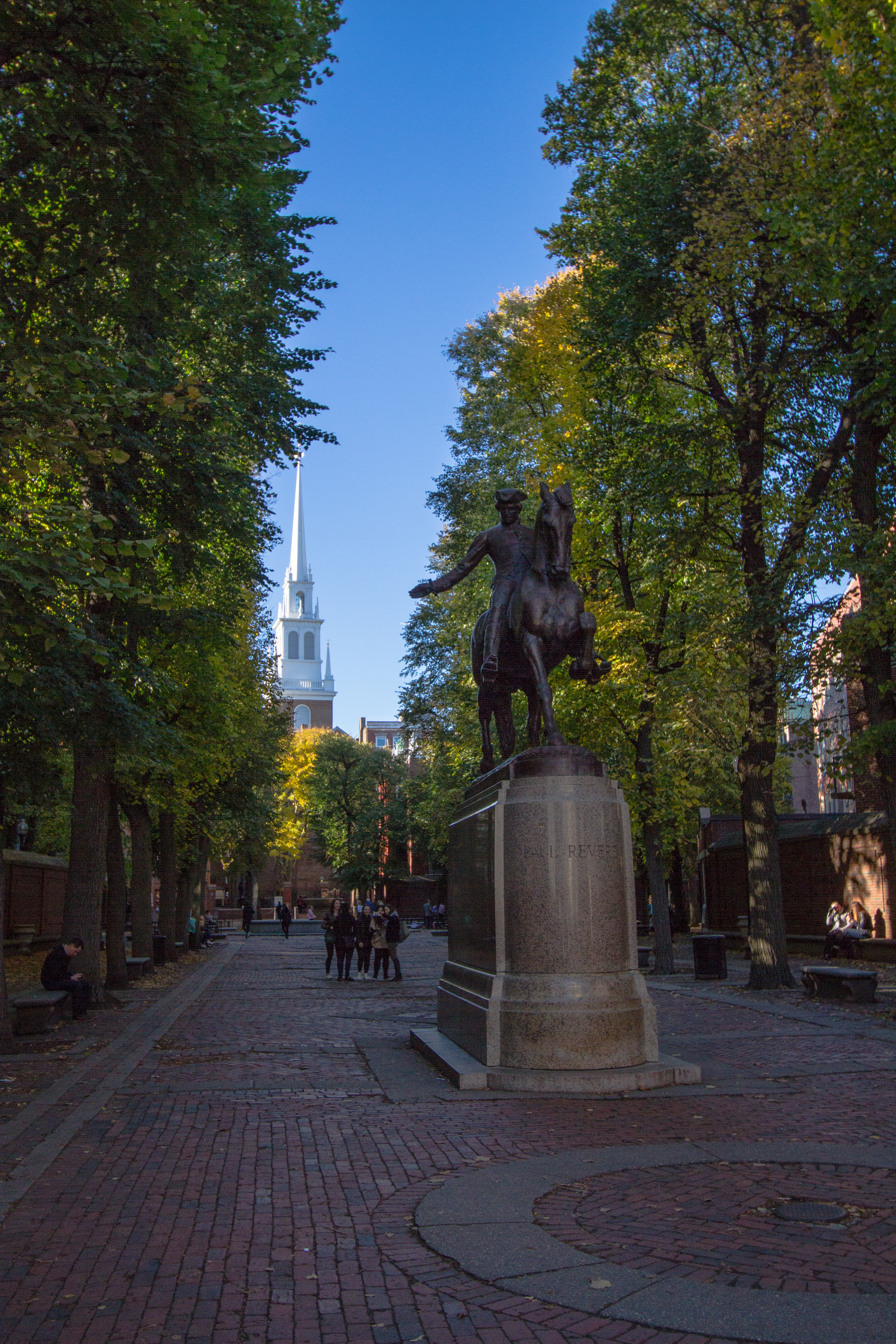
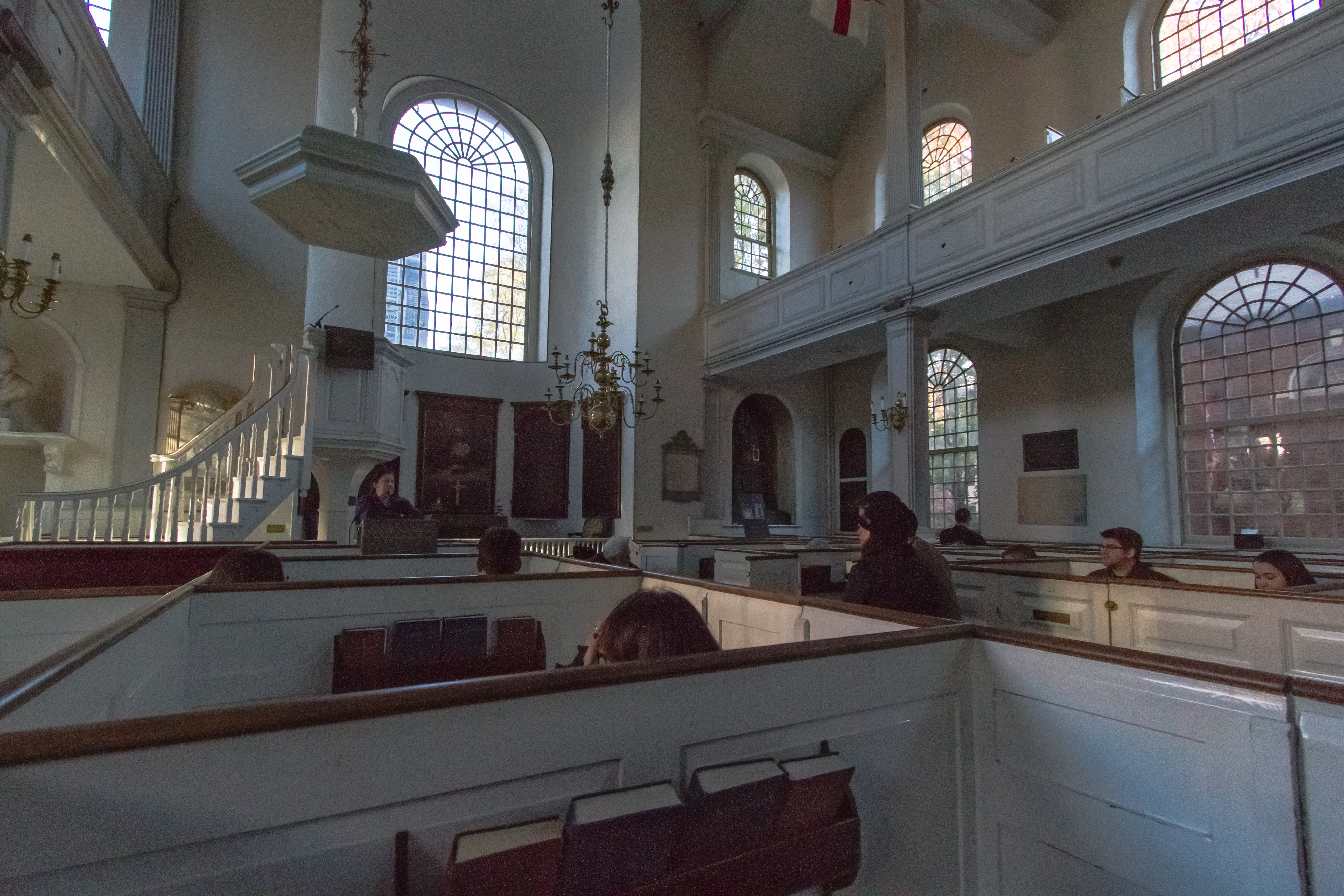
Granary Burying Ground
Adjacent to the church is the oak-studded Granary Burying Ground. The final resting place of an estimated 5,000 souls was named for the original grain storage building that once stood where the church now stands. The two-acre shaded swatch of land had been used since 1660 and was originally part of the Common. While there are 2,300 grave markers, including many of America’s most famous founders, early records show that many more reside there unmarked. To further confuse things Molineaux expounded on how the headstones had been reorganized into conventional, neat rows following the invention of the lawnmower.
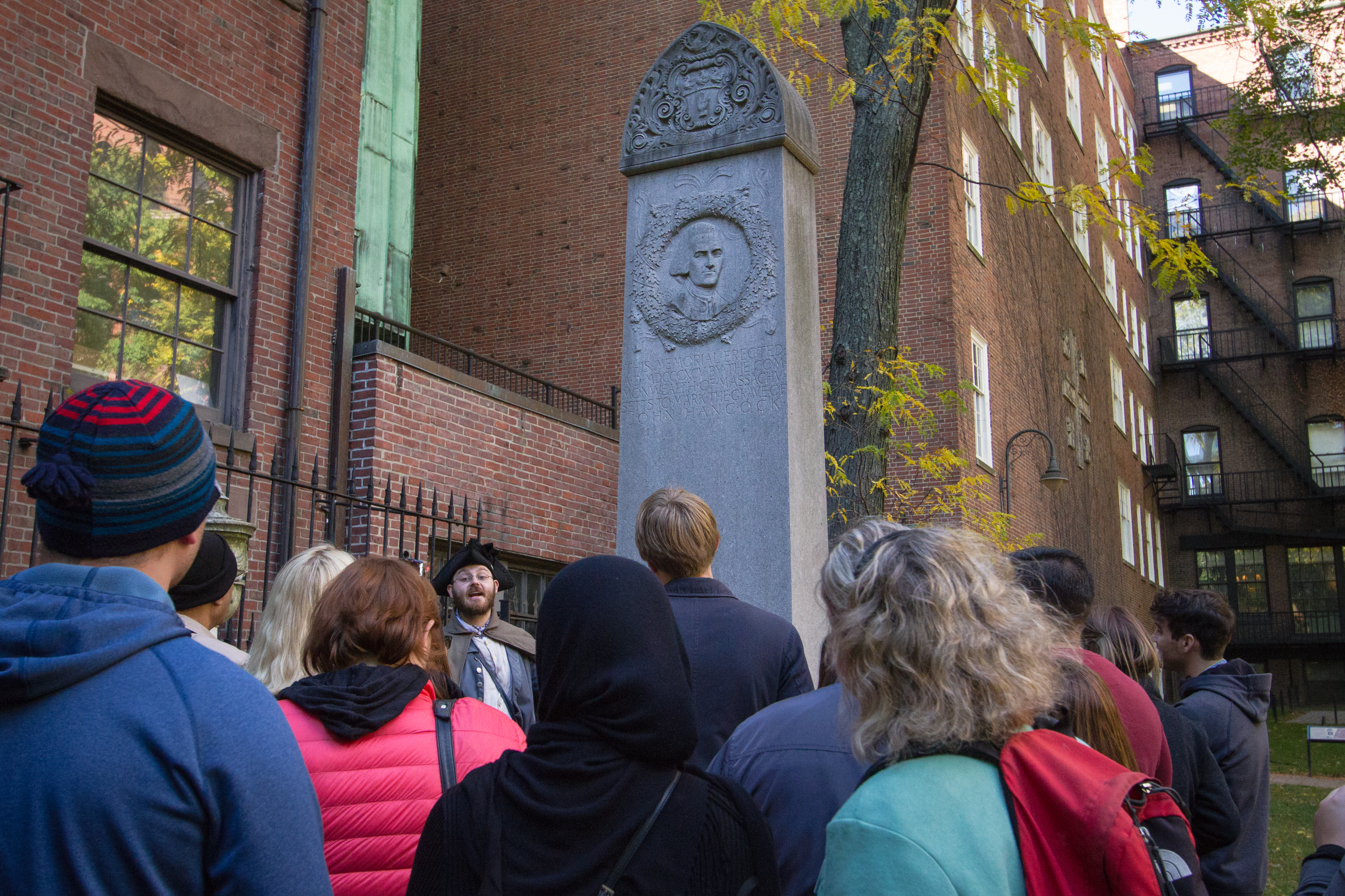
Within Boston’s 3rd oldest burial grounds lie three signers of the Declaration of Independence. Five victims of the Boston Massacre, the parents of Benjamin Franklin, the orator of Independence James Otis, “Midnight Rider” Paul Revere and nine governors of Massachusetts are buried here. Boston History lies here. Molineaux escorted us into the shaded grounds and to the left.
Here, a large stone marked the remains of James Otis, whose fiery five hour speech was witnessed by John Adams. Stated Adams, “Then and there was the first scene of the first act of the opposition to the arbitrary claims of Great Britain. Then and there the child of Independence was born.”
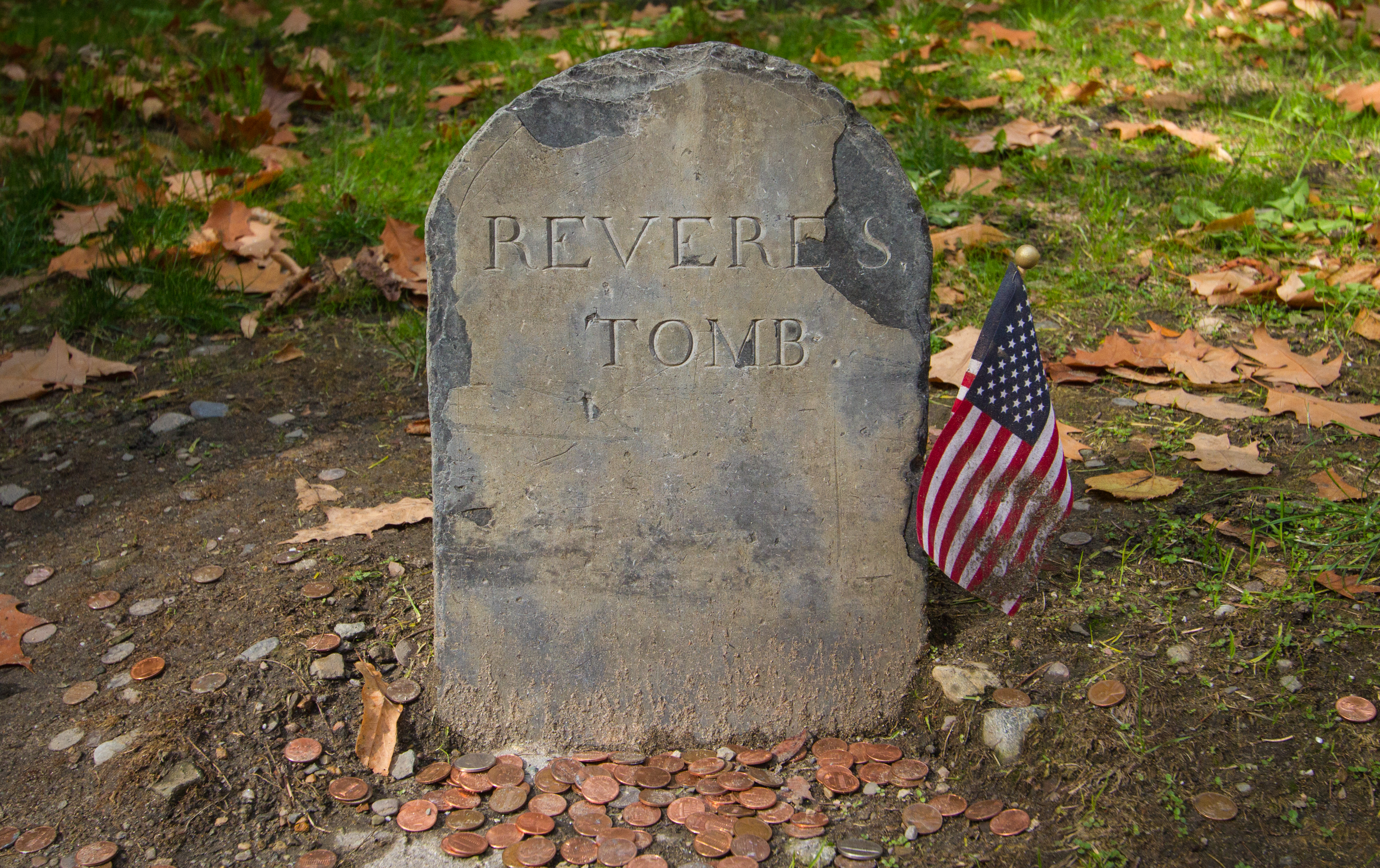
An extravagant stone pillar marked John Hancock’s tomb. Midway along the leaf strewn path, the slate marker of Molineaux’s fellow Son of Liberty Paul Revere is also visible.
Boston History Comes to Life
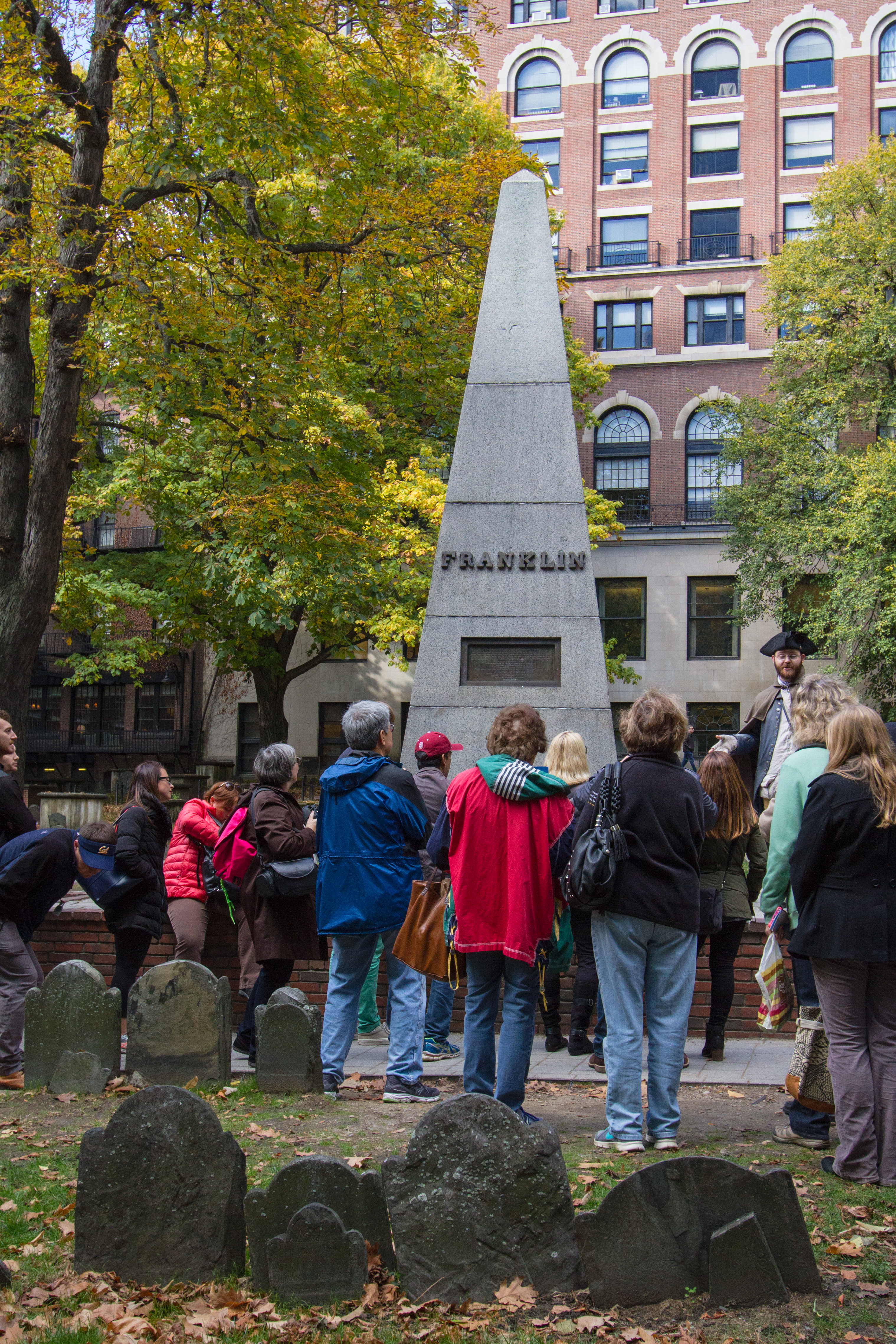
Next we made our way to the dominating stone obelisk next to which Benjamin Franklin’s parents are buried. Even though Ben is buried in Philadelphia, this cenotaph was erected in his honor. We passed the weather streaked vault of Robert Treat Paine, another signer of the Declaration of Independence. Continuing on, we made our way to Samuel Adam’s grave and that of the Boston Massacre victims.
Half a block from the Granary Burial Ground sits dark stone facade of the first Anglican church in New England, King’s Chapel. Past the King’s Chapel Burying Ground, we found the site of America’s first public school, the Boston Latin School. It was at this school that five signers of the Declaration were educated, including Ben Franklin. Although Franklin never graduated, there is a bronze statue of him marking the original site of the school.
We ticked off sites such as the Old Corner Book Store, where the greatest American authors gathered and published their works. Next the Old South Meeting House. Then the Old State House which is the oldest public building in New England and the chaotic site of the Boston Massacre.
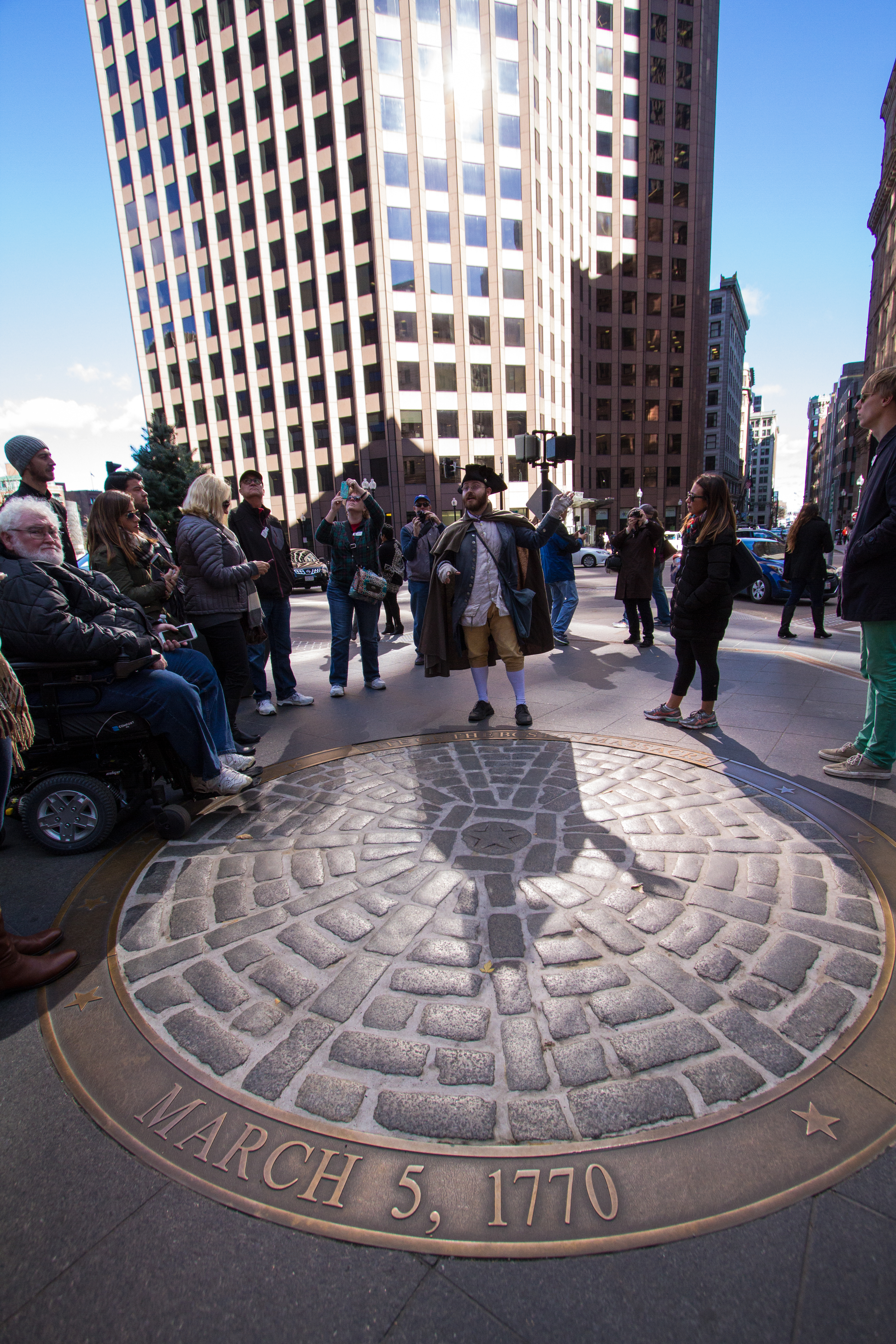
A ring of pavers set into the walkway commemorates the approximate spot where 5 Bostonians were gunned down. Many were also wounded when British troops fired into a hostile mob on the night of March 5, 1770.
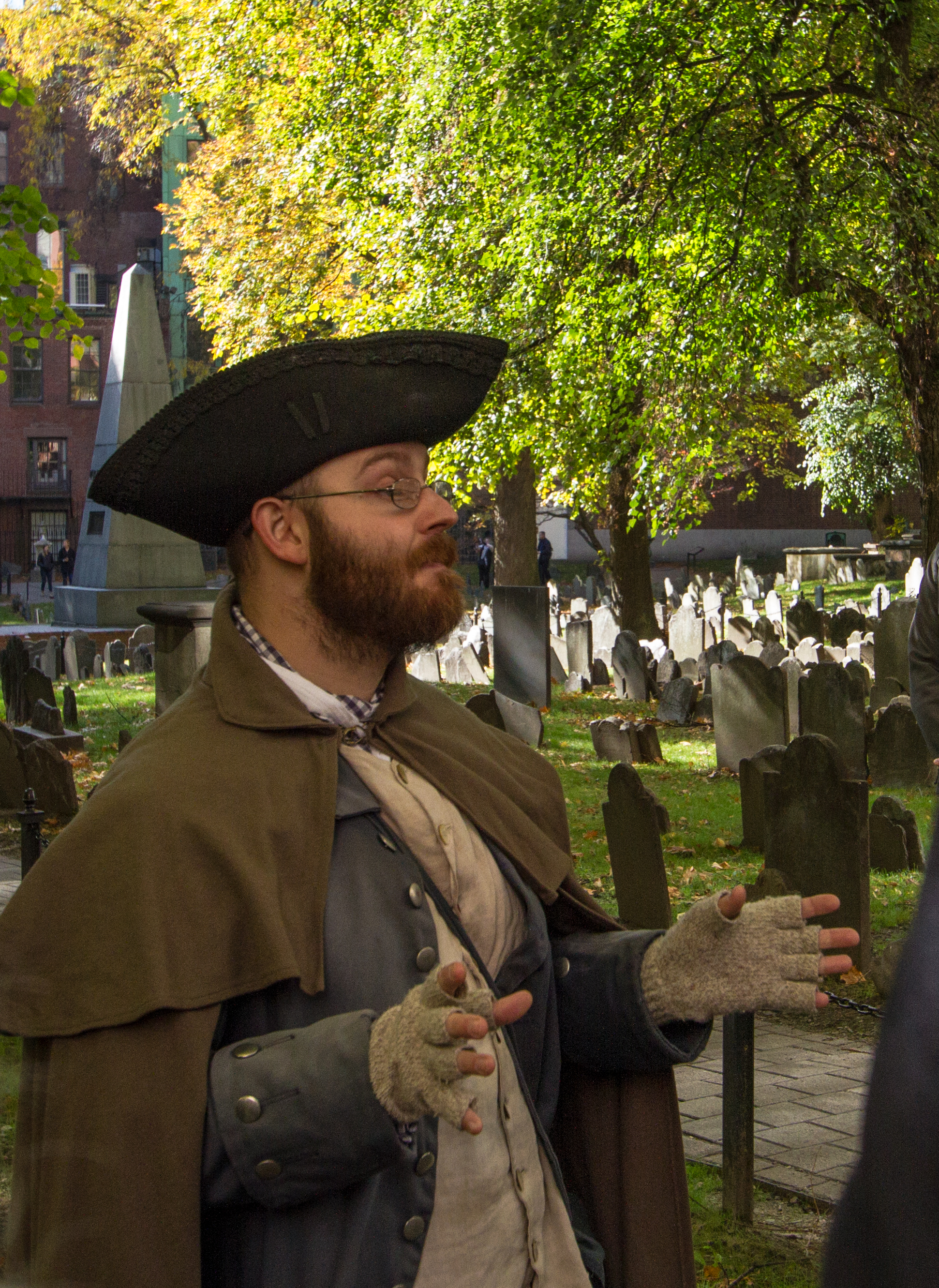
This tour ends beneath the 16 arched windows of Faneuil Hall which entertained America’s first Town Meetings. Here the Sons of Liberty denounced British oppression, and it became “The Home of Free Speech”. In addition, visitors can make a side trip to the Boston Tea Party Ships docked six blocks away. Also, consider joining the next Player-orated tour continuing on to the North End, or continue on the trail at your own leisure.
Freedom Trail North End Tour
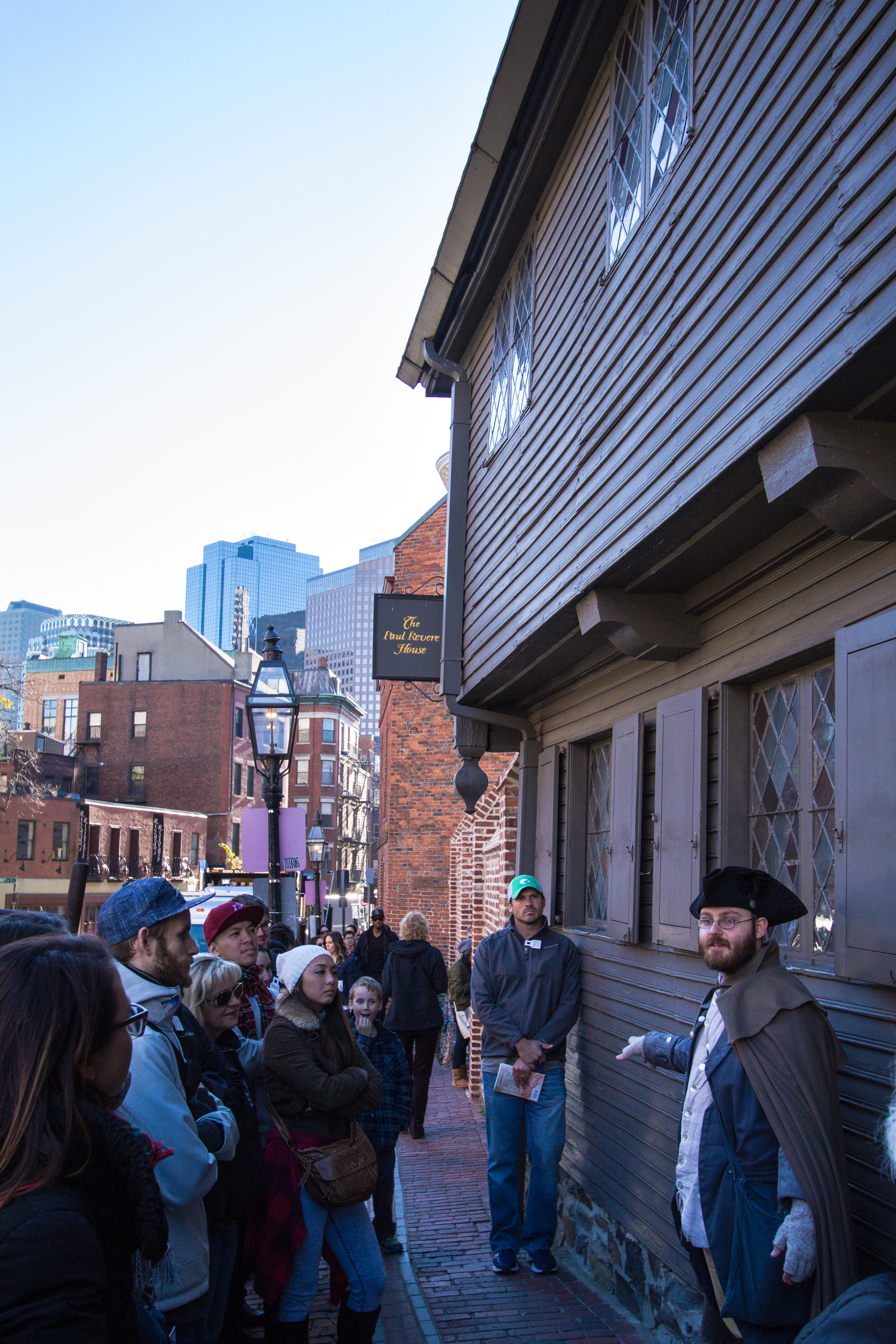
Guiding the next tour leaving Faneuil Hall was Molineux. He once again ushered us on towards Paul Revere’s House, a 10 minute walk into Boston’s North End. Along the way we passed the famous Green Dragon Tavern. Daniel Webster dubbed it the “Headquarters of the Revolution” because of the many clandestine meetings that took place there.
While walking from Revere’s modest two-story house to the steepled Old North Church, Molineaux continued to enlighten us. By separating fact from fiction sensationalized in Longfellow’s poem romanticizing Revere’s “midnight” ride he broadened our understanding of Boston History. The Old Church, from which the lanterns were hung to alert the Charlestown patriots of the advancing British, is the last stop on this guided trail. Tucked into the high-walled box pews, we listened to the daring feats of the Sons of Liberty on that fateful night of April 18th, 1775.
More than 22 million people visit Boston every year. As a result of the passion and dedication of The Freedom Trail Foundation these visitors are granted a tangible, authentic, immersive experience. For more information on The Freedom Trail, tour times and prices, or to make a donation visit www.TheFreedomTrail.org. Or you can call (617) 357-8300.



